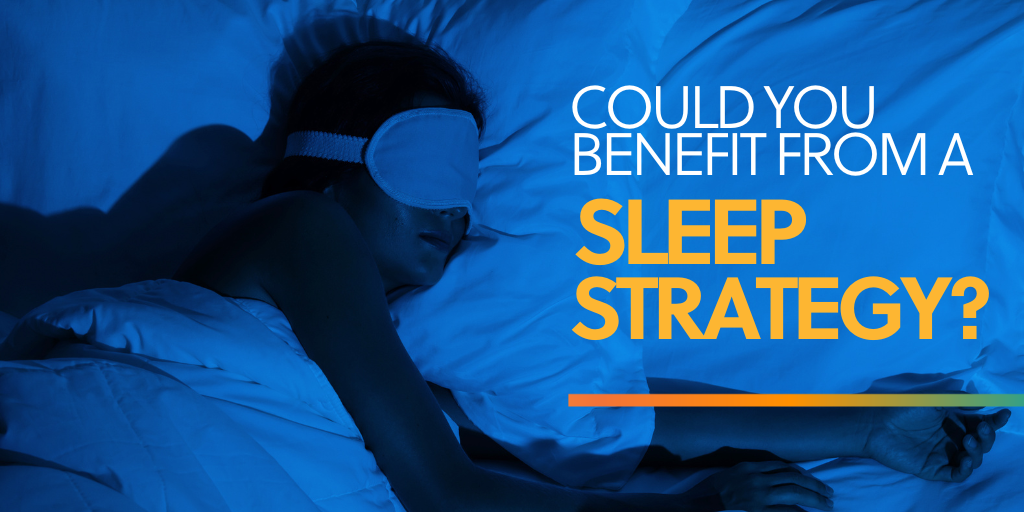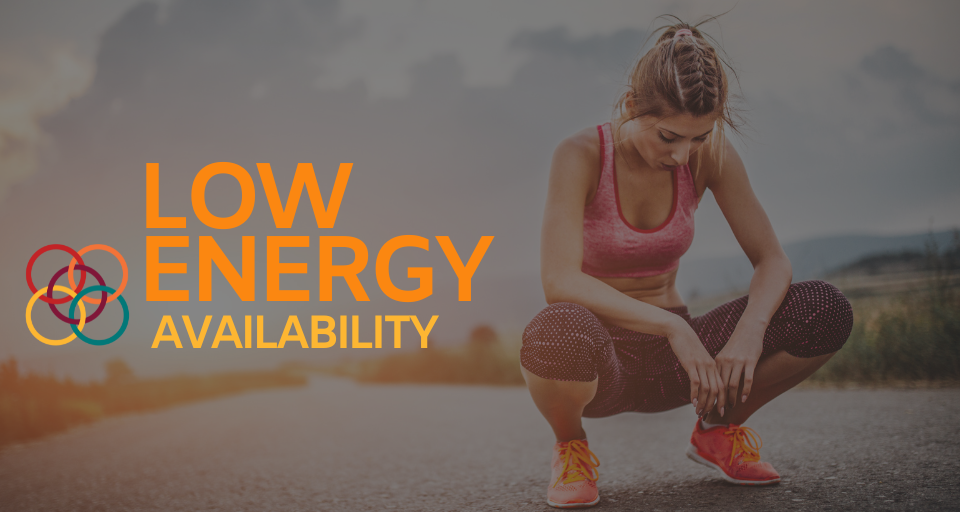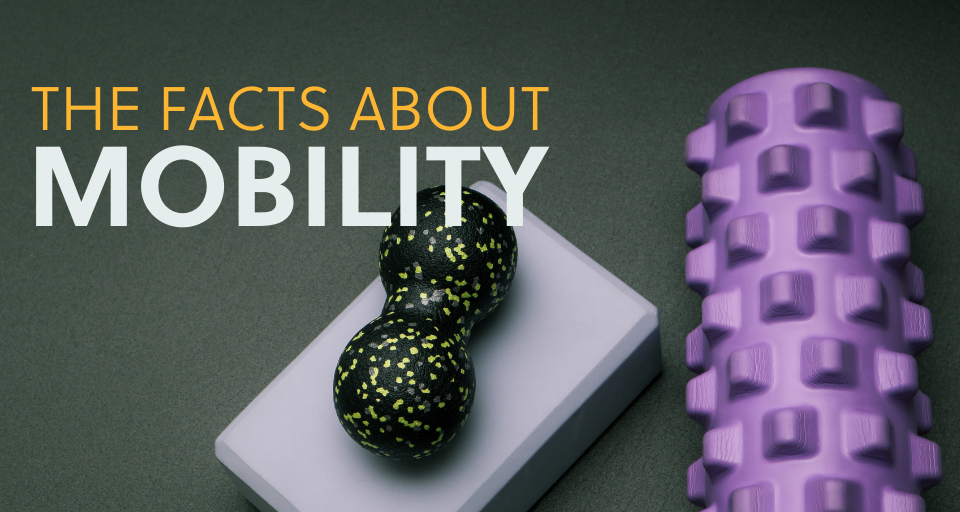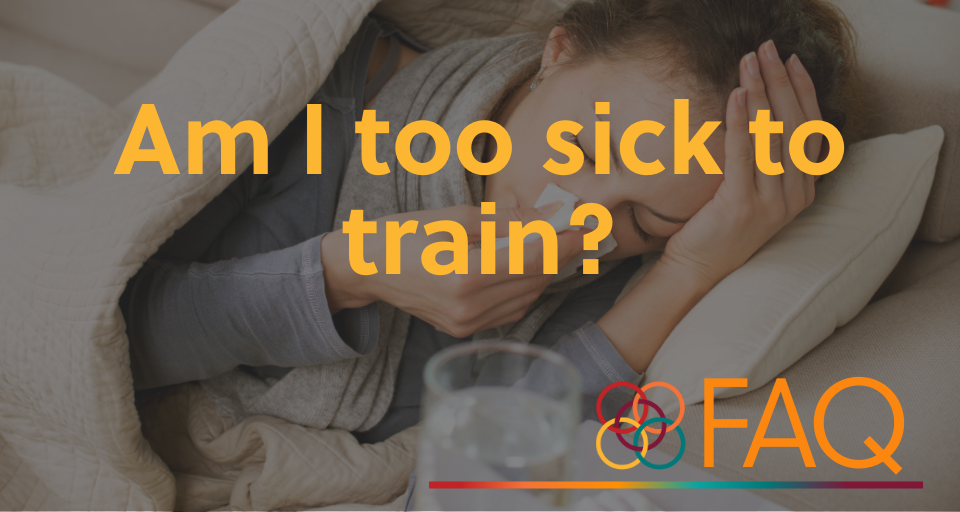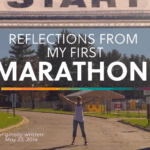
26.2 Reflections: My First Marathon
July 3, 2025
Ironman at 18: Conquering Lake Placid
August 19, 2025Struggling with Sleep? Here's How It Affects Your Training
It is an unspoken rule in our house not to mess with Mom’s sleep. I cherish bedtime, and diligently protect those precious hours when my brain and body reset. I feel like I’m a mess without quality sleep – brain fog, low energy, mood swings, anxiety. Poor sleep can also impact athletic performance, which is why understanding how sleep affects training is key to staying strong, balanced, and consistent. I value rest as much as my training hours, and so should you.
Why Sleep is Non-Negotiable for Athletes
To truly understand how sleep affects training, think of it as your body’s nightly recovery lab—where muscles rebuild, hormones reset, and energy stores refill.
Every part of your body—muscles, soft tissues, brain, and nervous system—needs time to recover, and sleep is when most of that happens. When sleep is junk, workouts feel harder, energy tanks faster, and muscles repair more slowly. Even one night of poor sleep can decrease endurance, reduce fuel stores, and make fatigue hit sooner. On the flip side, getting extra sleep can make exercise feel easier by lowering perceived effort.
Sleep also affects your motivation, focus, and overall well-being. Lack of rest can leave you feeling tired, sore, and sloppy, increasing the risk of mistakes or injuries—especially when training ramps up. Your immune system suffers too, making you more likely to get sick. Plus, sleep deprivation can mess with decision-making, so choosing the right foods for recovery suddenly feels way harder.
And don’t forget hormones. Key recovery players like human growth hormone spike during sleep, helping repair tissue, support muscle growth, and keep other hormones in balance. Miss sleep, and your body misses its chance to rebuild and adapt.
In short: sleep isn’t optional. It’s a cornerstone of performance, recovery, and long-term health. Treat it like training—because it is.
Barriers to Sleep in Athletes
You often hear that exercise helps improve sleep, so you’d assume that endurance athletes would dominate in the sleep department over our sedentary counterparts. Sadly, that’s often not the case. There are a number of reasons athletes might experience poor sleep quality:
Athletes are great at squeezing every drop out of a training day—but sometimes that means believing we can perform on just a few hours of sleep and a 3:30 a.m. alarm.
Training schedules can shorten sleep, especially on days that start with early morning and late evening workouts.
Nerves before a big event are real. Many athletes experience higher stress and anxiety leading up to competition, which can make it harder to fall or stay asleep.
As we get older, individual sport athletes often find quality sleep harder to come by.
Travel for races or events can throw off sleep schedules and disrupt circadian rhythms, which in turn can affect performance.
Hormonal rhythms are tied to sleep regulation. Sleep quality often drops in the luteal phase for a menstruating female, and can become unpredictable in peri and post menopause.
These common struggles highlight how sleep affects training consistency, recovery, and performance across every sport.
Unlock your Best Sleep Yet!
- Sleeping environments should be comfortable, cool, dark, without electronic devices, and with minimal ambient noise or distraction.
- Circadian rhythms are anchored by a steady routine with consistent sleep and wake times (even on weekends). Bright light exposure in the morning can also bolster our internal clocks.
- Not eating within 2 hours of bed is one of the best sleep hygiene practices out there. In her book Next Level, exercise physiologist Stacy Sims, Ph.D offers one caveat – a small amount of tart cherry juice, can aid in reparation and deep sleep.
- Scrolling before bed can mess with your circadian rhythm. More research is needed on whether it’s the light or stimulus, but one thing is certain, when we scroll, we get to bed later. Shut it down an hour early and leave your phone out of reach.
- Caffeine, as delightful as it may be, sticks around longer than we think. It has a half life of 5-6 hours, so go easy, especially in the early afternoon.
- Alcohol disrupts natural sleep cycles, especially REM sleep, leaving you feeling less rested. It can also cause more awakenings and tank overall sleep quality.
- Naps are not a substitute for nighttime sleep, but can provide additional performance benefit if you can’t get enough nighttime rest. Cap your nap at 30 minutes and avoid napping late in the day.
- Stress ramps up adrenaline and cortisol, leaving you tired but wired. Deep breathing calms the nervous system by activating the vagus nerve, while GABA – a brain neurotransmitter – decreases stress-related beta waves. Some experts recommend a natural GABA supplement to aid in stress reduction and better sleep.
- Athletes often need more sleep than non-active individuals—around 9–10 hours. To gradually increase your sleep, shift your bedtime earlier in 20–30 minute increments.
- I’ve found Magnesium Glycinate helpful for sleep—my PCP recommended it, and it seems to improve both how quickly I fall asleep and sleep quality.
Remember, understanding how sleep affects training isn’t just about science—it’s about giving your body what it needs to perform at its best. Sleep is an essential part of training—and arguably the most powerful performance-enhancing “hack” you have. Treat it as non-negotiable, and you’ll feel the benefits in both your workouts and your everyday life.
REFERENCES
Greer, S. M., Goldstein, A. N., & Walker, M. P. (2013). The impact of sleep deprivation on food desire in the human brain. Nature Communications, 4, 2259. https://doi.org/10.1038/ncomms3259
Kellmann, M., & Beckman, J. (Eds.). (2018). Sport, recovery and performance in Athletes. Abingdon, UK: Routledge.
ROBERTS, SPENCER S. H.1; TEO, WEI-PENG1,2; AISBETT, BRAD1; WARMINGTON, STUART A.1 Extended Sleep Maintains Endurance Performance Better than Normal or Restricted Sleep, Medicine & Science in Sports & Exercise: December 2019 – Volume 51 – Issue 12 – p 2516-2523
doi: 10.1249/MSS.0000000000002071
Halson SL, Bender A, Howatson G, Pedlar C.
Uncovering sleep behaviour in women’s football: what evidence do we have?
Sports Med. 2025.
doi:10.1007/s40279-025-02247-w
Walsh NP, Halson SL, Sargent C, Roach GD, Nédélec M, Gupta L, et al.
Sleep and the athlete: narrative review and 2021 expert consensus recommendations.
Br J Sports Med. 2021;55(7):356–368. doi:10.1136/bjsports-2020-102025
